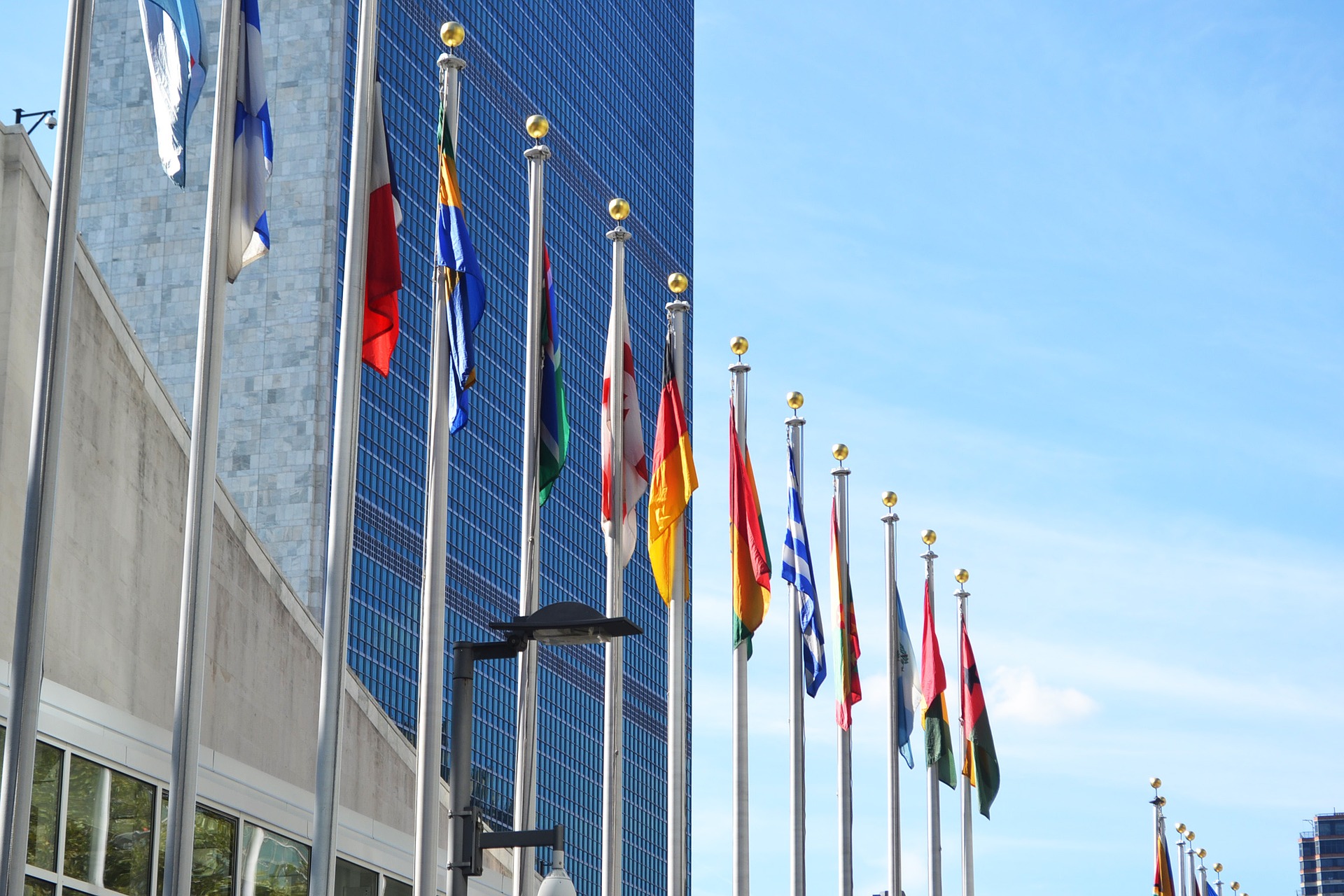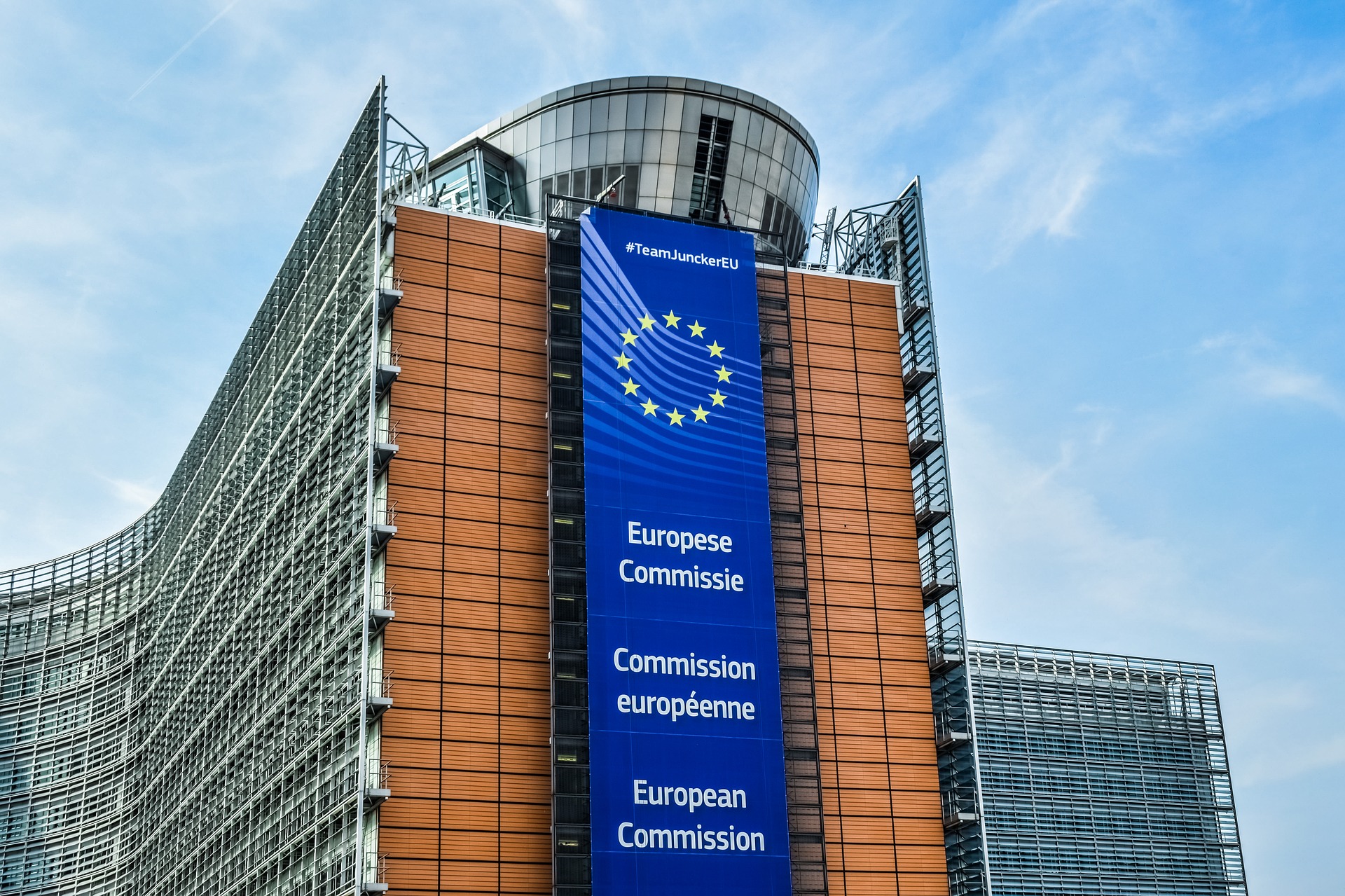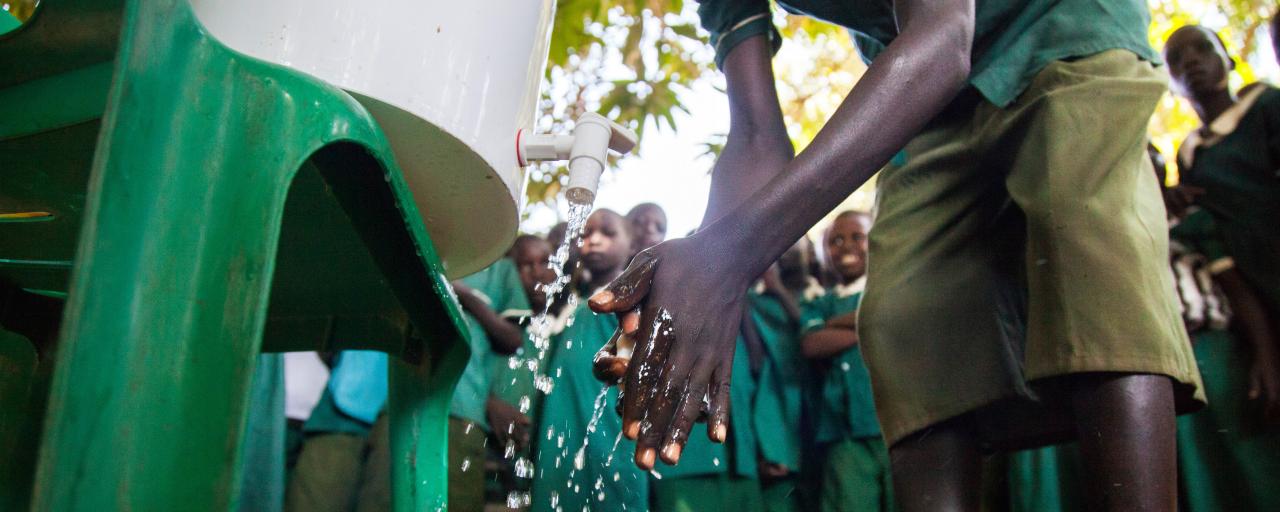By Renny Simone
MAIN PHOTO: Children wash their hands in Sudan. Washing hands, along with maintaining social distance, is one of the best ways to minimize transmission of coronavirus (Oxfam)
Half a billion people could be pushed into poverty as a result of the developing economic crisis precipitated by the coronavirus pandemic, Oxfam said in a briefing released on Thursday.
But the ‘Economic Rescue Plan for All’ that the influential nonprofit has proposed requires significant international cooperation.
The Oxfam report calls for a massive influx of spending from richer countries to poorer, coordinated by organizations like the Group of 20 (G20) and the International Monetary Fund (IMF). Oxfam estimated that at least $2.5 trillion would be required to avert the most catastrophic effects of the downturn, most of which would need to be distributed in the form of cash payments to individuals. Some regional organisations, including the African Union (AU), are already requesting aid.
“[Coronavirus] is an international challenge which requires an international response,” Moussa Faki Mahamat, chairperson of the African Union Commission, told France 24. The AU is asking for $100-150 billion in short-term relief. Mahamat said he hoped that the coronavirus would serve as “a hymn, an anthem for multilateralism and solidarity”.
The record of prominent international organizations, however, has caused some to doubt the global community’s ability to cooperate effectively in the face of this crisis.
Stewart Patrick, a UN observer from the Council on Foreign Relations, has criticized the United Nations Security Council’s inaction in response to coronavirus. The Council was due to meet in the course of the day to discuss the impact of the pandemic for the first time since the crisis began.
“What is all this good for if, when push comes to shove, the countries of the world don’t actually do anything?” Patrick asked in a Politico article.

The European Union, which is currently deliberating over a 546 billion euro response package for member nations, is also showing signs of strain. Talks fell through on Wednesday night, according to the BBC, and a deal has not yet been struck. For some, including Italian Prime Minister Giuseppe Conte, the crisis threatens not only European economies, but also the future of the EU itself.
“If we do not seize the opportunity to put new life into the European project, the risk of failure is real,” Conte told the BBC.
Italy is among the countries hardest hit by the virus.

Eyes are now turning to the International Monetary Fund (IMF), which is due to begin holding its annual spring meetings on 17 April. The meetings, which will include the IMF, the World Bank Group, and G20, will be held virtually for the first time in the IMF’s history.
Kristalina Georgieva, head of the IMF, offered a grim assessment of the situation in a speech on Thursday, in advance of the meetings. The economic impact of the virus, she said, will be catastrophic.
“In fact, we anticipate the worst economic fallout since the Great Depression,” she said, as reported by The Guardian.
The Guardian reported that nearly 90 low- and middle-income countries have asked the IMF for financial assistance since the start of the pandemic. Georgieva agrees that “low-income nations” deserve special attention. However, the IMF’s specific plans to help the world’s poor, and whether they are able to successfully coordinate a cooperative relief effort, will likely remain unclear until next week’s meetings.




